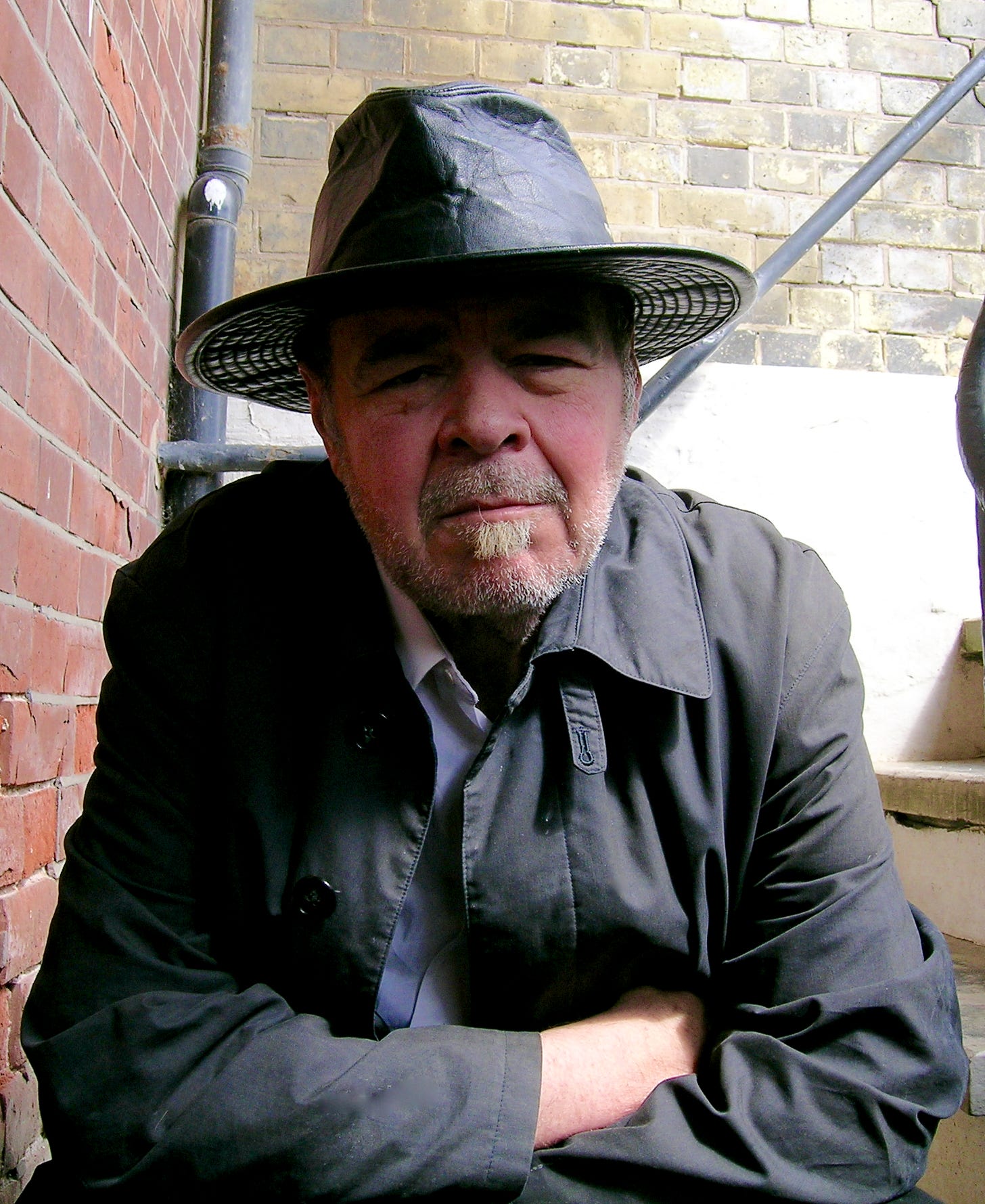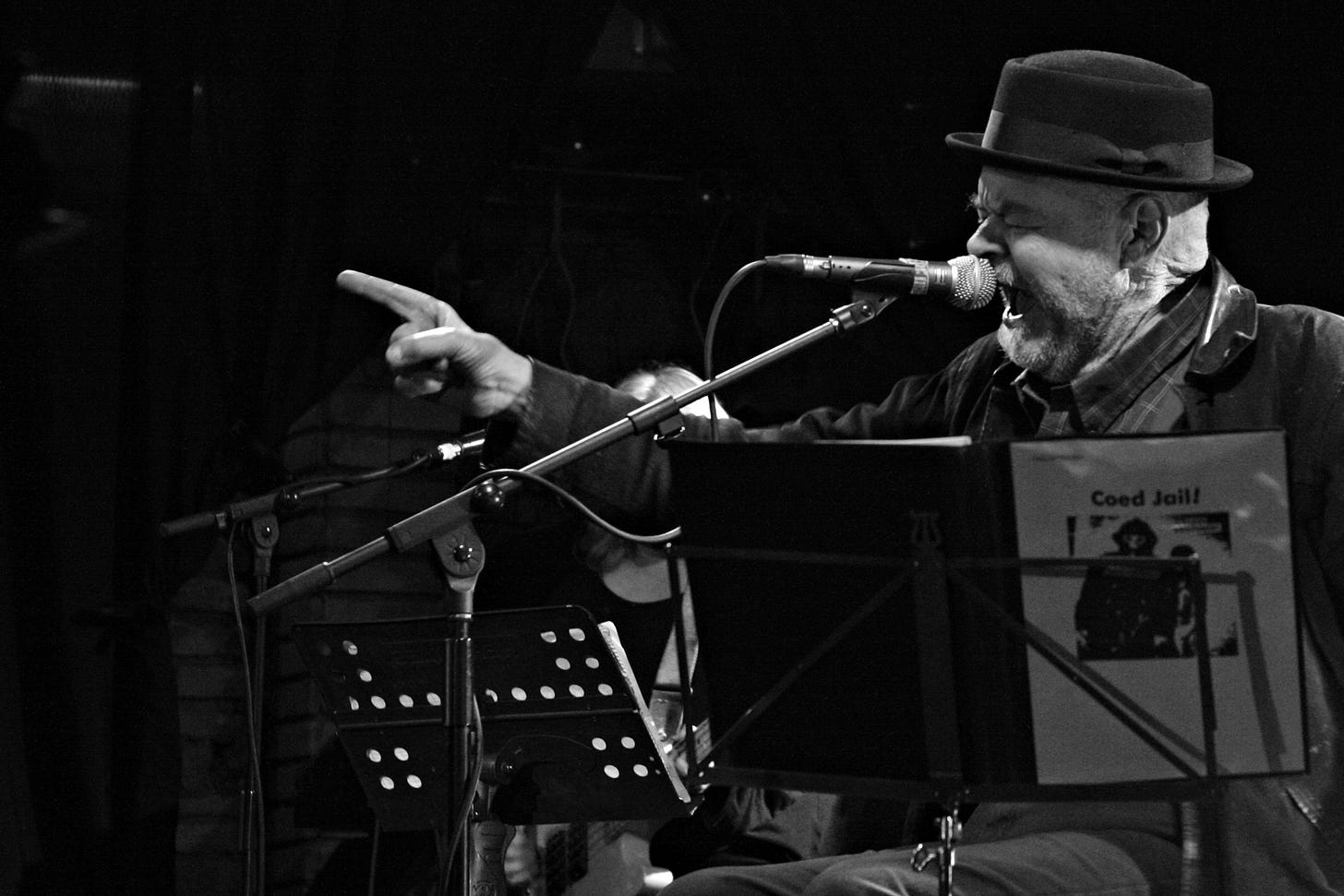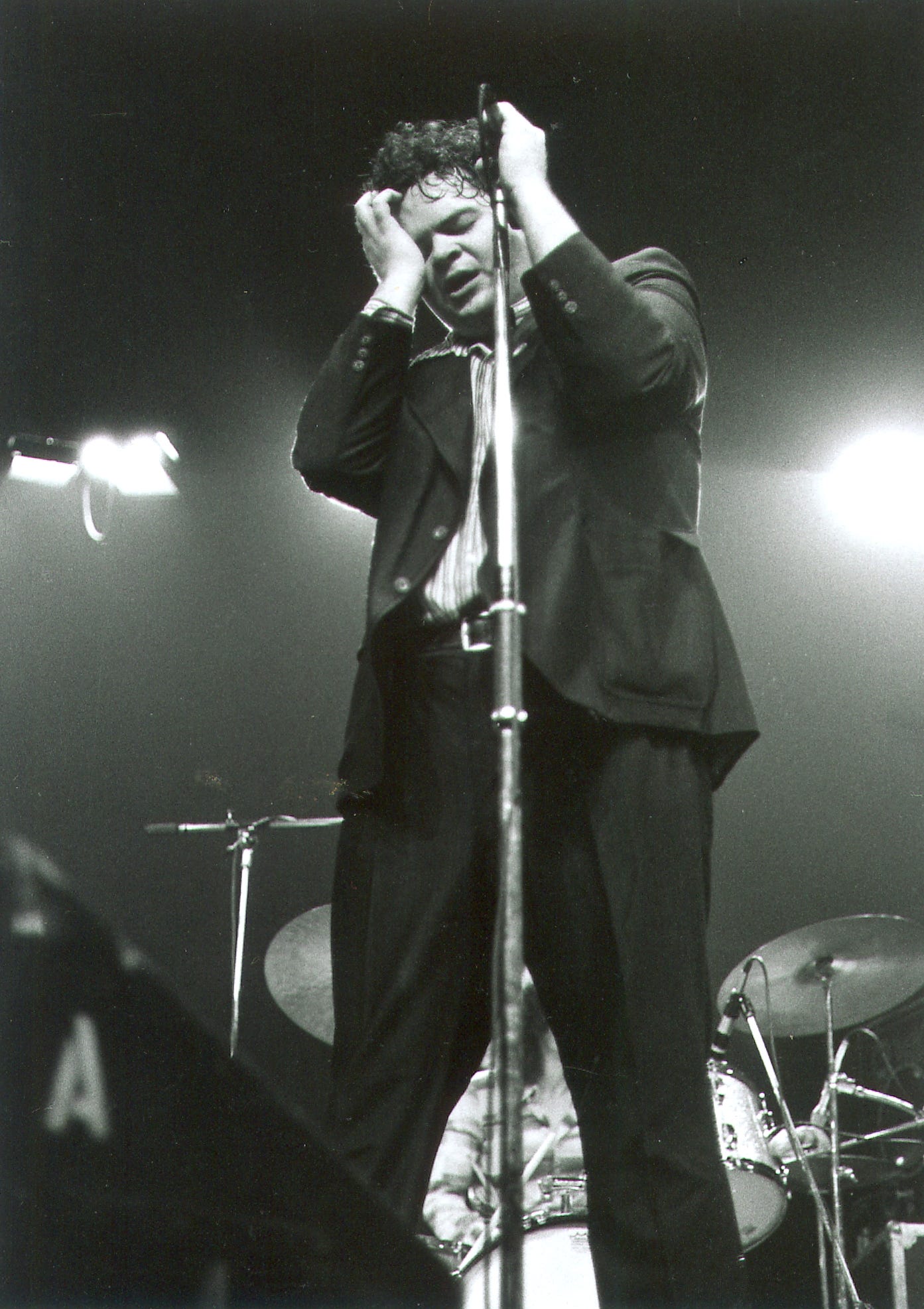Picture it: The Pearly Gates, April 23, 2025. Heaven already has its hands full with the sudden homegoimg of Pope Francis two days prior, but Saint Peter is still doing his job at the front desk.
A portly white American male, freshly arrived, steps to the reception desk to get checked in.
“Welcome To Heaven, my son. What is your name?”
The new arrival states, full of confidence and testicular fortitude, “My name is David Fucking Thomas, and I’m the lead singer of the best fucking rock and roll band in the world.”
Granted, a lot of bands have reason to lay claim to that title. And quite frankly, they all have to learn to share. Because Pere Ubu is one of those bands that deserves it without dispute - their fifty years of idiosyncratic recordings, from their debut single “30 Seconds Over Tokyo” to their most recent release Trouble On Big Beat Street, are evidence of that.
And one of the kickers behind that statement Is that Thomas had not expected to last more than a couple of self-released 45s. Still smarting from the implosion of his first band, Rocket From The Tombs (where Thomas had been using the pseudonym Crocus Behemoth, a handle he initially used while editing and penning reviews for the local alternative newspaper The Cleveland Scene) which would also birth the Dead Boys and thus earn Thomas some extra mailbox money for having co-written “Sonic Reducer”, one of several RFTT tunes departing member Cheetah Chrome would take with him1 - Thomas conferred with guitarist Peter Laughner and suggested that they form a new group to record a few singles on their own alternatively named Hearthan/Hearpen label2 that in years to come would hopefully end up as coveted as fifties rockabilly and sixties garage rock bands had become by 1975. That plan turned into playing gigs “until things didn’t go well”. One of those early singles ended up in the hands of Cliff Bernstein, then head of A&R at Mercury Records, who contacted Thomas one day in 1976 to compliment him on the band’s self-released singles, while admitting that Mercury might not be a good fit for the band. Someone at Chrysalis Records’ London office would contact Thomas a week later, wanting to sign the band. Thomas then called Bernstein to seek his advice. Bernstein told Thomas to stay put for a week, conned Mercury into starting a sub-label under Bernstein’s aegis called Blank Records, signed Pere Ubu, and released The Modern Dance. (Blank would last long enough to also sign The Suicide Commandos and buy the rights to the Blank Records name from Glenn Danzig in return for financing the sessions that are now known as The Misfits’ debut album Static Age.)
Thus began Pere Ubu’s career in earnest - as well as Bernstein’s future career as a rock manager (two little bands known as Def Leppard and Metallica amongst his charges; Bernstein is said to have even taken Def Leppard to a Pere Ubu soundcheck in London so that they could see how a professional band set up their equipment3.) Throughout the first part of their existence, the band would start a routine of going through frequent lineup and label changes. Their second and third albums, Dub Housing and New Picnic Time, would come out worldwide on Chrysalis.
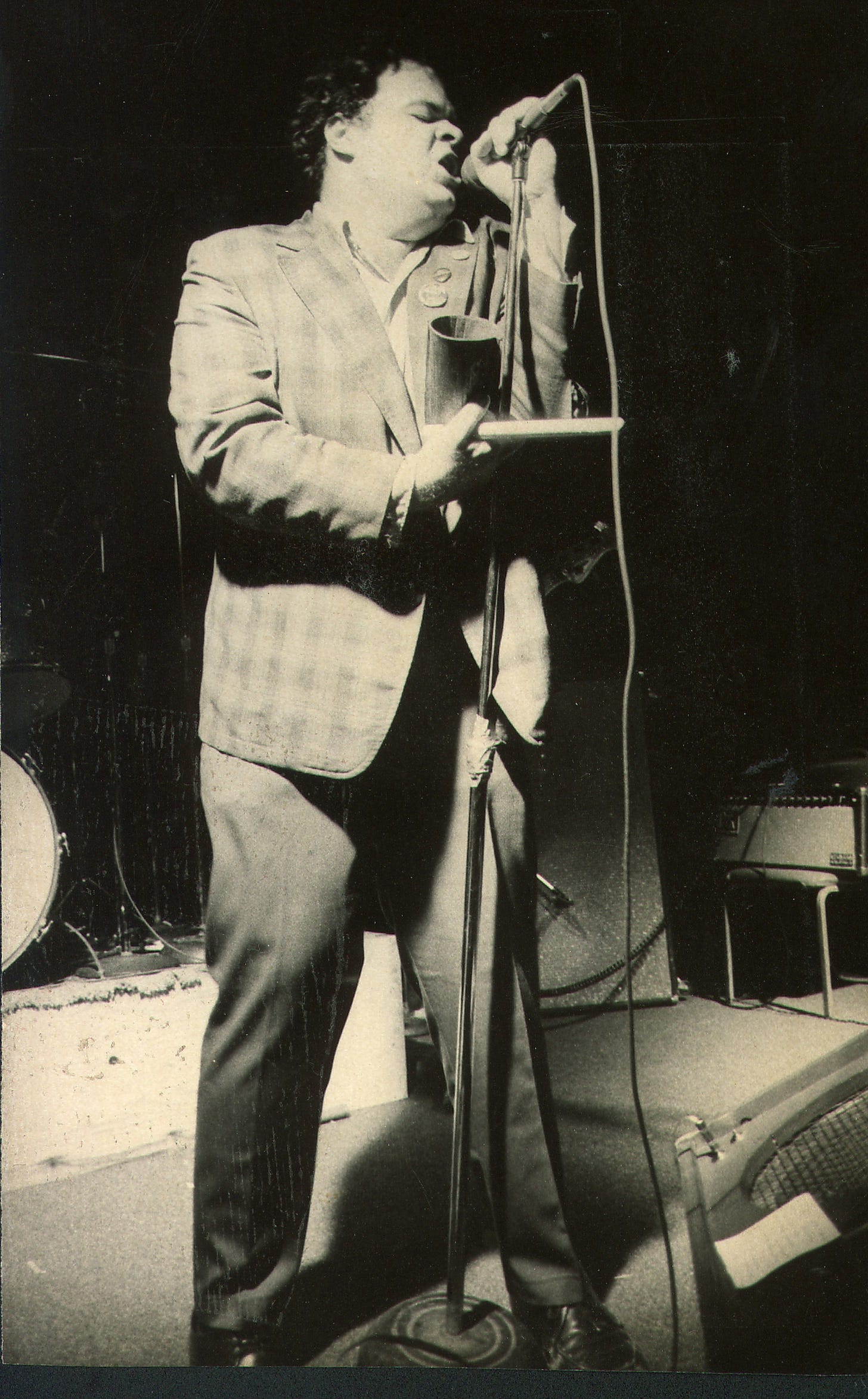
A couple of albums into their career, a piece of constructive criticism/advice from Bernstein would form part and parcel fo Pere Ubu’s modus operandi for the rest of their career. Bernstein had told Thomas that if they continued artistically as they had been doing without any deliberate mainstream concessions, they could at least have a long, if somewhat obscure career. Thomas took that to heart and stuck with it. This is one reason why so many up and coming punk and alternative bands openly revered Pere Ubu. The members of Hüsker Dü - having just formed their own band recently - would attend a Pere Ubu concert in their home base of Minneapolis and then be bold enough to get onstage afterward and talk to the various band members. Jello Biafra recounted getting the idea to engage in a campaign to run for San Francisco mayor on the way to a 1979 Pere Ubu concert when then-Dead Kennedys drummer Bruce Slesinger joked “Yeah, Biafra, you’ve got such a big mouth, you should run for president - no, run for mayor!” - and then proceeded to scribble down the initial ideas for his campaign planks on a napkin with a Flair pen while Pere Ubu played.
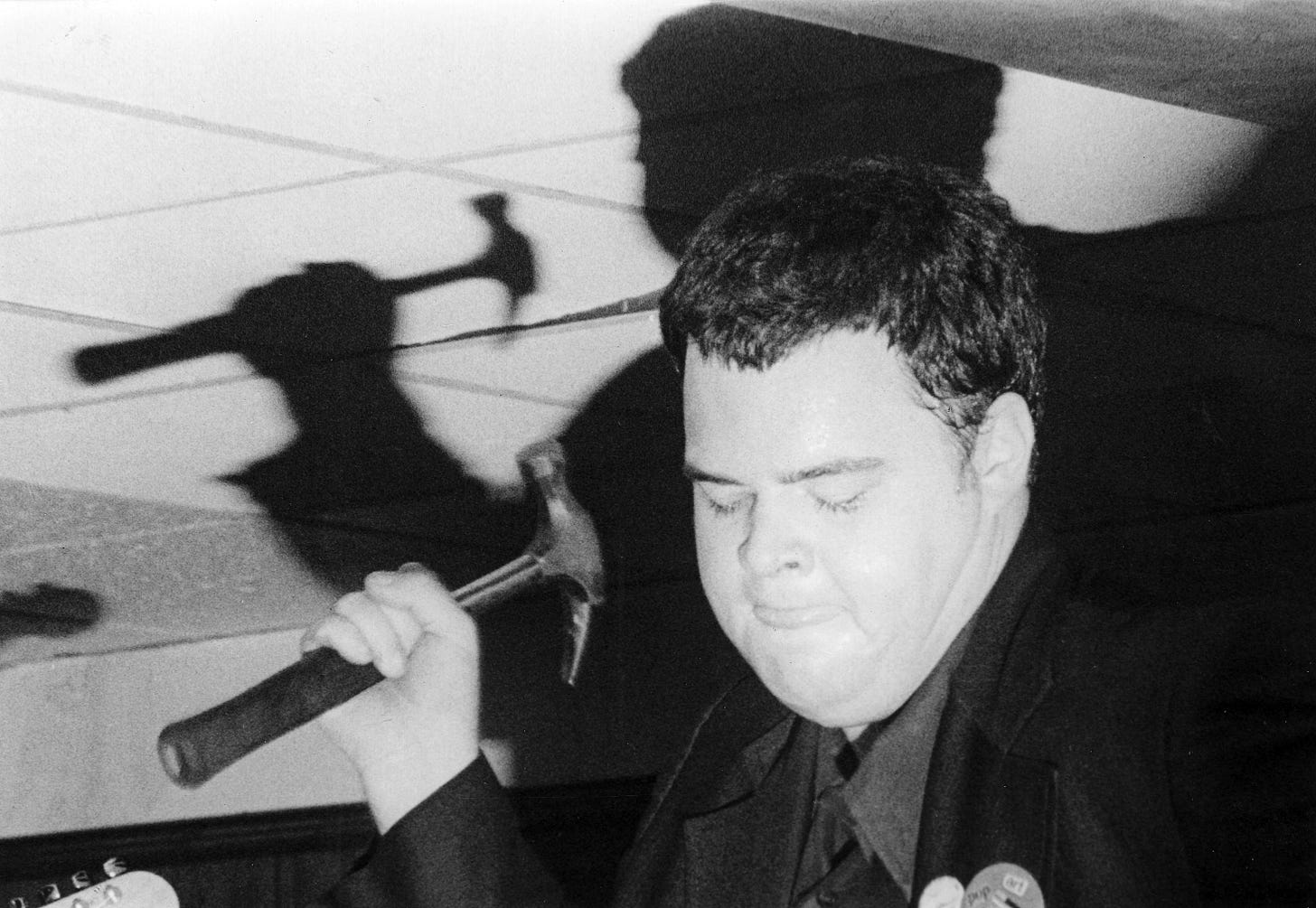
Label homes would not be the only thing changing in the world of Pere Ubu - frequent personal changes would also be a factor, with Thomas being the sole consistent member (not unlike his English counterpart Mark E. Smith and his band, The Fall). The band’s history spans fifteen different record labels (including a brief period where the band’s early back catalog was licensed to Geffen Records for a box set, while they were on Fontana/Mercury for new material) and about twenty-one different members in the group, with Thomas adhering to the proposition that anyone being in the band even for one night was forever a member of Pere Ubu - fellow protopunk icon Brother Wayne Kramer of the MC5 having sat in with the band for one night being one of the most extreme examples of this! Peter Laughner had left the band after their first two singles and would not live to see them make their first major label debut (although his song “Life Stinks” would be one of the few RFTT songs to survive the transition to Pere Ubu’s songbook, while “Ain’t It Fun”, another Laughner co-write with Cheetah Chrome, would get immortaliezd in the Dead Boys’ catalog and get great covers versions done by Guns n’ Roses with Michael Monroe and Rollins Band). Guitarist Tom Hermann would be replaced by Red Krayola’s Mayo Thompson for The Art Of Walking, which saw Ubu debut on the venerable Rough Trade label. Drummer Scott Krause would leave briefly, to be replaced by Anton Fier until Krause returned a couple of weeks later; Fier would replace Krause again for Song of the Bailing Man, which would end up the band’s last album for about five years.
Pere Ubu was obviously not just the David Thomas show or a revolving cast of anonymous sidemen that faded into obscurity. Original bassist Tim Wright would later join New York no-wave legends DNA. Wright’s successor, Tony Maimone, as well as Anton Fier, would become Bob Mould’s rhythm section during his early pre-Sugar solo career. Eric Drew Feldman, he with such a wide resume including Captain Beefheart (a vocalist David Thomas was frequently compared to), Snakefinger, Frank Black, and most recently The Residents, was with the band during their Cloudland/World In Collision period. Outside of Pere Ubu, Thomas would also collaborate with the likes of Richard Thompson, Hal Willner, and Mike Watt
Thomas then embarked on a solo career that saw him working with various combinations of backing musicians/collaborators. By 1987, Thomas had found himself with a solo band that included fellow ex-Ubus, bassist Tony Maimone and synthesizer wizard Allen Ravenstine, both of whom had been in the band when they first broke up, along with Henry Cow drummer Chris Cutler and fellow Cleveland scene veteran Jim Jones on guitar. Thomas ended up incorporating a few Pere Ubu numbers in the set for the tour behind his then-current solo album Blame The Messenger, and afterwards decided to make a Pere Ubu reunion official and successfully reached out to Scott Krauss. (The part of David Thomas that was a big Allman Brothers Band fan openly liked the idea of having a two-drummer backline in Pere Ubu.) In a bizarre turn of events, the band found itself doing a rather avant-pop direction and returning to the major label world by signing with PolyGram’s Fontana imprint (ironically, Mercury was also a PolyGram label and Fontana has been a sub label of it focusing on English acts)… somewhat. Fontana US initially passed on releasing The Tenement Year, the band’s reunion album, instead licensing it to quasi-indie label Enigma/
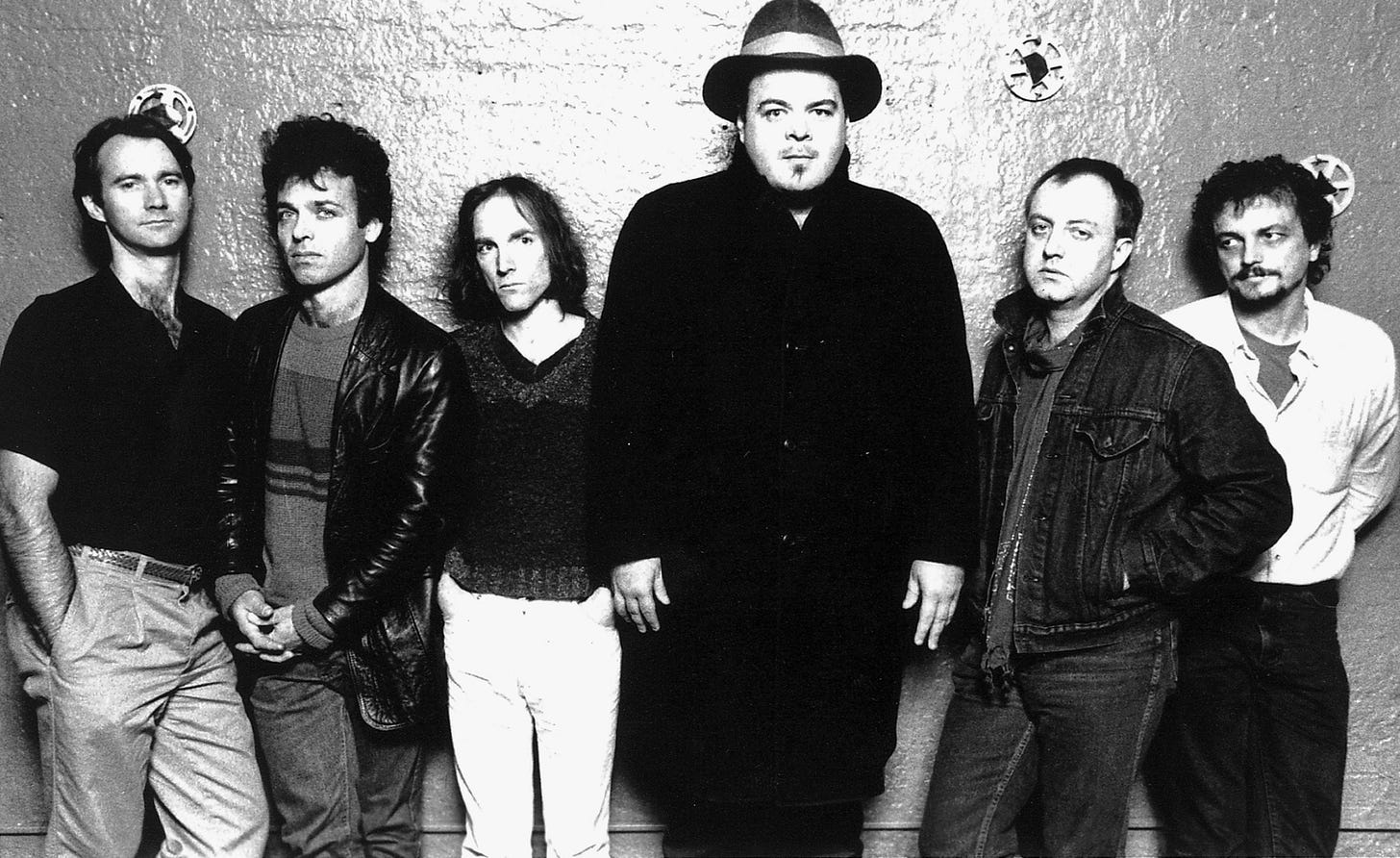
Not realizing what they had, Fontana pretty much kept dropping the ball with Pere Ubu in their own home country, with only Cloudland, their Stephen Hague-produced seventh album and the one with Pere Ubu’s closest thing to a mainstream hit, “Waiting For Mary”, and its followup album Worlds In Collision coming out through PolyGram in the States. Story Of My Life, the band’s final Fontana-era album, was licensed to the Imago label (and because of that particular copyright clusterfuck, is the only Pere Ubu album from this period that Fire Records was unable to reissue when a vinyl box set of their Fontana material was released).
Such was Fontana US’s seeming disdain for Pere Ubu that the label refused to cover airplane tickets for the band members to fly from Europe to New York to appear on Late Night With David Letterman to promote Worlds In Collision; it would take the efforts of various fans and admirers, including Living Colour guitarist Vernon Reid, to get the band to New York for the broadcast.
After that, it was back to independent labels for the rest of the band’s existence, with different deals with differnet labels depending on the country of orgin. All of their back catalog, save for the Fontana albums, is now owned by Thomas’ holding company Ubu Projex (which, as of 2021, is a partnership owned by 19 of the twenty-one band members or, in the case of Peter Laughner and Tim Wright, their beneficiaries) and as such, has been reissued secveral times over by the likes of UK labels Cooking Vinyl and Fire and US labels Tim/Kerr and Smog Veil. As of this writing, Fire Records has been responsible for keeping Pere Ubu’s back catalogue available worldwide, minus their Fontana-era albums (of course) and their three most recent studio releases; 20 Years In A Montana Missle Silo, The Last Goodbye and Trouble On Big Beat Street and the live album By Order Of Mayor Pawlicki are currently distributed by Cherry Red Records.
Simultaneous with Pere Ubu’s most prolific period in the 2000’s and 2010’s, Thomas would find himself reviving Rocket From The Tombs with original members Cheetah Chrome and Chris Bell, amended with Television guitar legend Richard Lloyd in place of the last Peter Laughner, and Pere Ubu’s longest-serving recent drummer Steve Mehlman rounding the unit out. The band promoted the archival CD The Day The Earth Met Rocket From The Tombs (consisting of rehearsal and live recordings done during the band’s original existence) and recorded their first formal studio albums, Rocket Redux (studio renditions of the early RFTT material, recorded at Lloyd’s own studio in New York City) and Barfly before first Cheetah, and then Richard Lloyd, left the project. A third studio album, Black Record, with new guitarists in place of Cheetah and Richard, was released in 2015.
Around the time of the early 2000’s Pere Ubu albums, David Thomas had relocated to England with his wife Kristi and their stepdaughter. Pere Ubu had been maintaining a geographically diverse recording and touring lineup during this time, but paperwork clusterfucks with either the American Federation of Musicians and/or “a faceless goverment agency in Vermont” (Thomas’ words) forced Thomas to revoke the US “citizenship” of both Pere Ubu and RFTT to Leeds, England and Wales, respectively.
Over the past several years, Thomas and his wife/manager Kristi (known as Communex in communications from the band’s headquarters) have been overseeing re-revisions of Pere Ubu’s back catalog, going from mere remasterings of the back catalogue to outright remixing them - with the band’s early 2010’s albums Lady From Shanghai being the latest catalogue titles to recieve the Thomas Revision treatment.
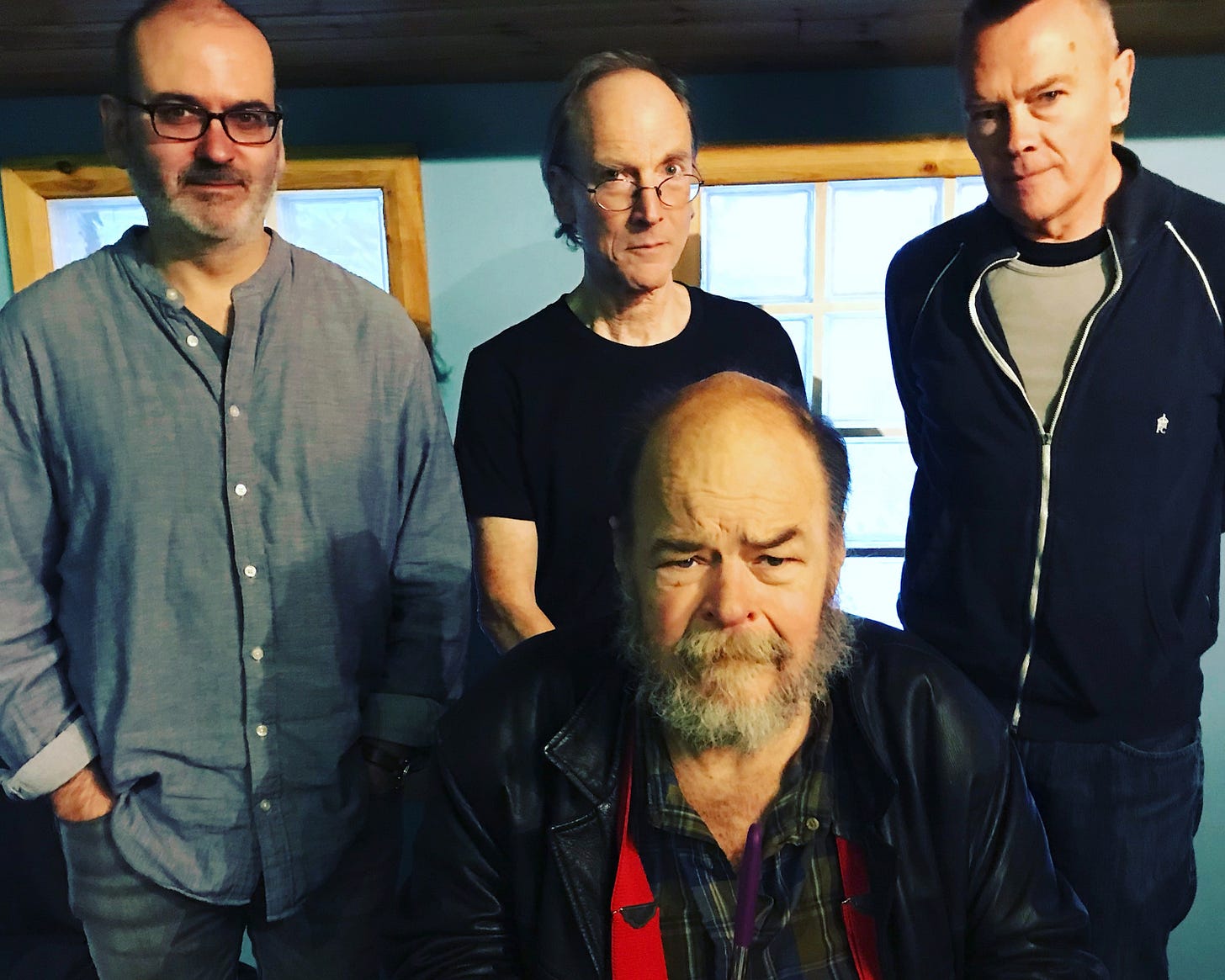
Several years ago, the band’s website, UbuProjex.net, posted a “David Thomas Death Protocols” notice stating that they were going to deliberately hold off giving notice of Thomas’ passing for at least two years, while maintaining the company line that the band was still a somewhat active entity. This gave longtime fans pause. The band’s contract riders had been mentioning for years that Mr. Thomas required a hotel room that had elevator access because of his bad legs. In 2019, Pere Ubu would release an album called The Last Goodbye, which had been solely composed and mostly performed (on his collection of synthesizers and drum machines) by David Thomas before he passed the recordings on to the other members of the band for embellishing how they saw fit; sudden hospital stays for David after the intial completion of the album and after a live performance in Spain that was immortalized for the bonus CD on the company disc edition of the album. The COVID lockdown put paid to any further touring behind the album. In 2023, Pere Ubu ended up playing its last American shows - and what ended up being their last shows ever, in New York and Los Angeles. Thomas, who ahd been sitting down in “a sturdy chair” (ad mandated by the band’s tour riders) for yeras, was now in a wheelchair, and the band’s primarily American lineup for these dates included both Mayo Thompson and Brother Wayne Kramer on guitar. Other than online streaming shows by what was billed as The Pere Ubu Moon Unit - a random assemlage of Thomas, other Ubu members, and occasional guests - performing concerts consisting of wholly improvised material, those would be Pere Ubu’s last two shows ever.
A followup to Trouble On Big Beat Street was in the works, along with continuing archiving of official “bootleg” recordings of the band for their archival Bandcamp page, when David passed. Longtime synth player Gagarin had already passed away from cancer in 2024 and openly indicated before his passing that ht wanted the rest of the band to finish the album. Now, with Thomas’ own passing and under his wife’s watchful and lovong gaze, that albuk, along with his long-in-progress autobiography, will be completed. It will be a fitting closer to a long, storied, and indelibly influential career.
Reportedly, Thomas did not want “Sonic Reducer” to be altered in any way, but Stiv Bators still rewrote a lot of the lyrics against Thomas’ wishes.
Apparently, it’s “Hearpen”, pronouned hey-are-pen unless the name is incorporated into a design, when it becomes spelled “Hearthen” and prounced hey-are-than (as in, rhymes with van).
Sadly, Thomas didn’t advise their drummer not to lose an arm to drunk driving, lest he end up being replaced by a drum machine… yeah, I went there.



